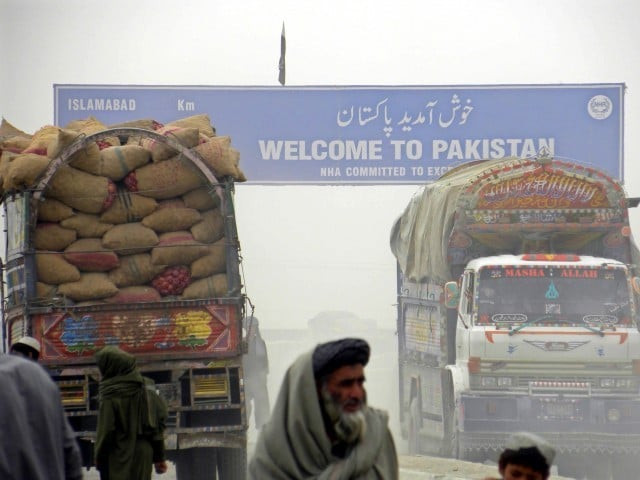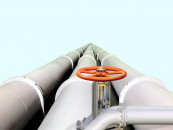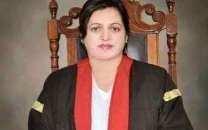Pakistan amends Afghan transit trade mechanism to cut transportation cost
Bonded carrier regime system changed for Afghan transit trade to meet the traders' demand, says envoy Mohammad Sadiq

Pakistan has changed the bonded carrier regime system for Afghan transit trade to meet the traders' demand, Pakistan's Special Representative for Afghanistan Mohammad Sadiq said.
"Under new regulations even owner of 1 truck can now transport bonded cargo. This ends the rent seeking & monopoly of a few & substantially reduces the transportation cost," he wrote on his official Twitter handle on Wednesday.
Pakistan have changed the bonded carrier regime system for Afghan transit trade to meet traders' demand. Under new regulations even owner of 1 truck can now transport bonded cargo.This ends the rent seeking & monopoly of a few & substantially reduces the transportation cost.
— Mohammad Sadiq (@AmbassadorSadiq) July 7, 2021
He also wrote on the microblogging site that the bonded cargo is transported from Pakistani ports to Afghanistan and beyond.
The bonded cargo is transported from Pakistani ports to Afghanistan and beyond.
— Mohammad Sadiq (@AmbassadorSadiq) July 7, 2021
Earlier today, the interior ministry closed the Torkham border point for all kinds of movement due to the coronavirus on directives of the National Command and Operation Centre (NCOC) in order to stem the spread of coronavirus pandemic.
The closure of the country’s border with Afghanistan came a day after Dr Faisal Sultan, the special assistant to the prime minister on health, said that there had been a “small but definitive uptick in [coronavirus] cases, percentage positivity and other parameters” in the country.
In a meeting on Monday, the NCOC was informed that 3,000 Afghan students had started arriving in Pakistan. The forum also noted that effective coronavirus testing had been arranged and the students found positive would be sent back, while the rest would observe quarantine for 10 days.
Read more: Pakistan sends another batch of aid to Afghanistan to fight Covid
However, Interior Minister Sheikh Rashid announced in a tweet on Tuesday that Torkham border had been closed. “On the advice of the NCOC all types of immigration departure and arrival will be close from today at Torkham Border till the fresh Guidelines of NCOC,” he wrote on Twitter.
On Tuesday, Pakistan handed over seven containers of Covid-19 supplies to the Afghan government to help fight the pandemic.
The handover ceremony was held at the Torkham border which was attended by Afghan and Pakistani health officials while Chief Customs Collector Asif Mehmood Jah attended the event as the chief guest.
Addressing the ceremony, the customs official said Pakistan has always stood shoulder to shoulder with Afghan citizens during testing times and Islamabad would extend all possible assistance to Kabul to cope with Covid-19.
The trade activities between the two countries suffered a lot due to the pandemic, he said and added that with the cooperation from the two sides the trade activities would be enhanced once the situation returns to normal, Asif Mehmood added.
Speaking on the occasion, Afghan Consulate Commercial Attaché Fawad Asghar said that the pandemic has badly affected the livelihood of Afghanistan, adding with the cooperation of friendly countries the situation would return to normal.
Also read: Torkham border shut to stem Covid spread
The Afghan official said that Afghanistan is in dire need of oxygen as the country is grappling with the third wave of the pandemic triggered by new virus variants.
The seven containers compromising medicines, oxygen cylinders, ventilators and other accessories were handed to Afghan commercial attaché.
Traders, last month, had urged Islamabad and Kabul to set aside the political differences and make joint efforts to boost bilateral and transit trade between the two neighbouring countries.
The participants urged the government of Pakistan to devise a separate policy or mechanism for Afghan traders to pave the way to get them registered with the Securities and Exchange Commission of Pakistan (SECP) and other authorities so they will contribute their share in Pakistan's economy.
They also attributed the strict regulations, complicated laws and cumbersome procedures as main hurdles in bolstering Pak-Afghan mutual trade and transit trade.



















COMMENTS
Comments are moderated and generally will be posted if they are on-topic and not abusive.
For more information, please see our Comments FAQ